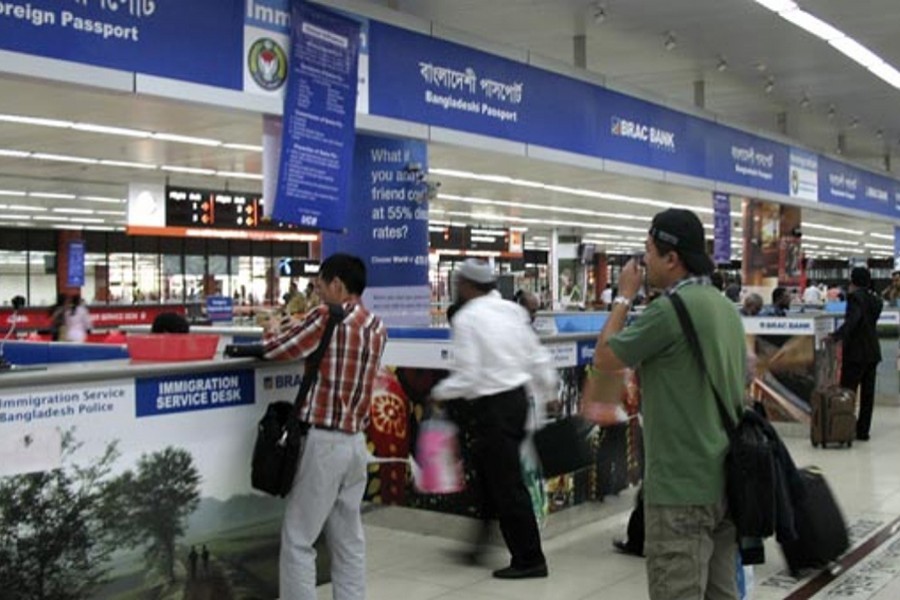Prior to the onslaught of Covid-19 and the 6-month shutdown, lots of people in the country would be seen opting for air travels domestically. The trend was apparently prompted by the inordinate delay in reaching destinations by land transports such as long-haul buses --- also trains in cases. The perennial gridlocks on highways are singularly blamed for this inconvenience. The markedly improved train services are there. But for many business persons and people needing urgent medical treatment, spending 6/8 hours on train travels means a great disadvantage. This reality may have served as a potent factor for the recent preference for air travels by people who can afford it. After the withdrawal of the long shutdown, the slowly increasing cross-country movement of people has brought the air-travel issue to the fore.
Against this backdrop, the government decision to upgrade the facilities of three domestic airports is welcome news. The ECNEC (Executive Committee of the National Economic Council) in this regard approved a project at a cost of Tk 5.67 billion on October 20. The civil aviation authority would execute the project. Shah Makhdum Airport in Rajshahi, Saidpur Airport and Jashore Airport will come under its ambit. Apart from the three international airports at Dhaka, Chattogram and Sylhet, the country has 12 domestic airports. Of them five are operational. The two once-important but presently unused airports are Ishurdi Airport and Cumilla Airport. Besides, the country once launched Short Take-off and Landing (STOL) airports with ambitious goals. They now lie unused at Bogura, Shamshernagar, Lalmonirhat, Noakhali and Thakurgaon. Three others have been declared defunct air-fields.
The Civil Aviation Authority Bangladesh (CAAB) appears to be poised to give a shot in the arm of the country's domestic aviation industry. Airports play a vital role in instilling vibrancy into an aviation sector by facilitating their use. Except isolated and minor glitches, the reputation of airports in Bangladesh has so far been free of a stained image. What impedes further improvement in the use of a country's airports is related mainly to infrastructure. Thus in the cases of the three Bangladesh domestic airports, CAAB has been seen focused on upgrading the existing runways and taxiways. At the same time, improvement in airfield ground lights and the drainage system is set to receive similar focuses. All this is aimed at ensuring secure air travels. The project is scheduled to be completed by June 2023. Meanwhile, the country's largest international airport in Dhaka warrants urgent remedies for infrastructural deficiencies that make it veritably unable to handle new-generation and wide-bodied aircrafts.
Presided over by Prime Minister Sheikh Hasina, the October 20 ECNEC meeting endorsed the project attaching great importance to it which it deserved. According to airport infrastructural specialists, the said renovations were especially necessitated by the recent long underuse of the facilities. Apart from other factors, the global outbreak of the Covid-19 pandemic has apparently prompted the authorities to undertake the project. The ordeals of the pandemic will be over one day. On the demand of time, airlines will eventually resume their flights to and from Bangladesh. Inside the country, Biman Bangladesh Airlines and the country's private domestic airways are set to emerge again on the airport radars. Given the prevalent realities, upgrading the existing facilities at airports, international or domestic, should be accorded top priority.


